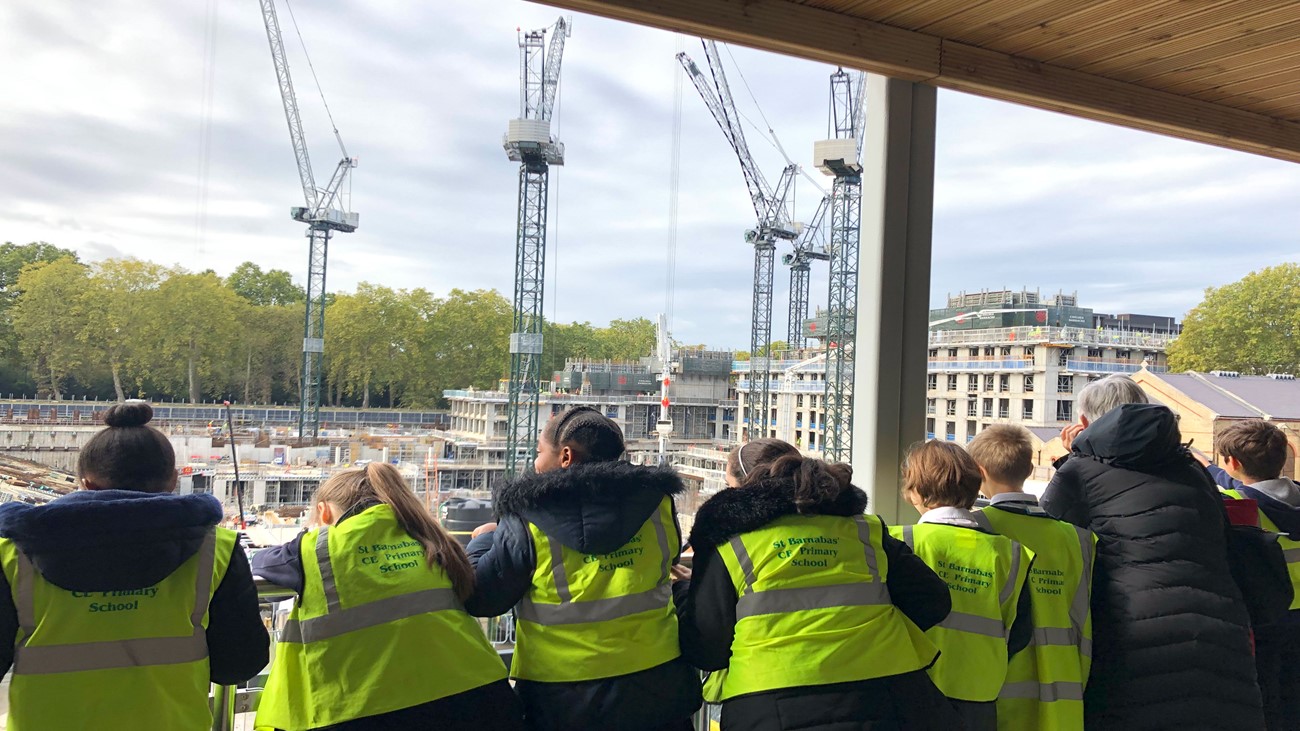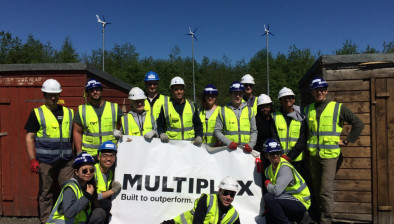Video: New Multiplex strategy to tackle deep rooted inequities in construction
Multiplex has unveiled a new plan of action that seeks to ensure it takes a leading role in tackling inequality and injustice across construction.

Identifying improvements across all aspects of its UK operations, the decade long social equity strategy will address key issues such as the just transition, mental health, wellbeing, fair employment, prompt payment, modern slavery, diversity and inclusion and income inequality.
Multiplex said its ’Leave no one behind’ responds to global concerns about growing social inequality, highlighted at the COP26 UN Climate Change Conference, and demands to ‘build back better’ after the pandemic. Its evidence-based approach recognises the growing convergence of environmental and social systems and takes into account the overlap between the earth, society and economy, relating to: decarbonisation, digitalisation, the just transition, green skill opportunities, technological breakthroughs and the impact on equity.
In order to respond effectively to the climate emergency and the long-standing social hurdles and systematic problems that prevail in construction, Multiplex believes a complete overhaul is required, backed by levers within the built environment, and linked to complex sub-systems within insurance, finance, design and construction.
As such, it has listed priorities according to four strategic pillars encompassing: health, safety and wellbeing; diversity, inclusion, and respect; socio-economic value, and respecting communities. The priorities include:
By 2022
- Implementing flexible working across 100% of project sites
- Introducing a maximum 14-hour day door-to-door policy
- 50% of all graduate intakes will be female
- Achieving an average of 35 days to pay suppliers
- 100% of projects to carry out initial community engagement within 6 weeks of contract award
By 2025
- Zero exposure to diesel emissions from plant on 100% of projects
- At least 10% of projects to be led by a female team member
- 33% spend with SMEs
- Reducing the socio-economic talent gap by providing 50 work placements to disadvantaged groups to address income inequality
- Invest in green skills and training, by providing 5 green job opportunities
- 10% reduction in labour churn in their first tier 100% of all first-tier supply chain paying the Real Living Wage
By 2030
- Measuring and tracking musculoskeletal health impact on 100% of the workforce
- 30% of our executive leadership team to be female or from an ethnically diverse background
- 100% of key materials to be screened for human rights risks
- Providing 45 new roles per £100 million turnover (approx. 439 new entrants and apprentices/year)
- 40% increase in directly employed labour per £1m spent
Callum Tuckett, UK managing director, said: “As one of the largest industries in the world, construction has considerable scope to lead the way and implement the changes necessary to contribute towards reducing inequality and building more inclusive societies.
“We believe there is an urgent need to recalibrate, to ensure a coordinated and well-planned response, with social equity integrated into our decarbonisation roadmap and at the very heart of our approach to ESG.
“Our strategy lays out very clearly the actions we are going to take as a business but also, and more importantly, how we will be trying to influence our supply chain, our clients and wider industry stakeholders to maximise our collective impacts and ensure that no one is left behind.
“The goals and targets for us to achieve by next year, 2025 and 2030 are based on a number of factors, including: government policies and regulations, industry commitments, academic research and megatrends, industry best practice benchmarks, as well as its own social return on investment data.”















